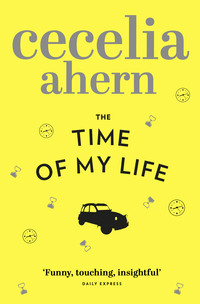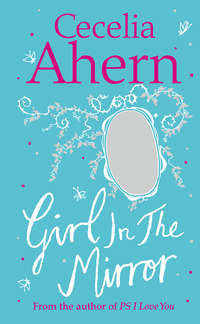
Полная версия
Roar: Uplifting. Intriguing. Thirty short stories from the Sunday Times bestselling author
They married, she quit her job, nursed her children, cuddled them, spent sleepless nights caring for them on the shelf, then watched them sleep, gurgle and grow on the rug and playpen beneath her. Ronald liked for her to be alone on the shelf, he employed childcare so that she could have her space, so that she could stay in the place he built for her, so that he wouldn’t lose a part of her to the children, or that their special relationship wouldn’t be altered. She had heard of couples who were torn apart after having families, husbands who felt left out when babies arrived. She didn’t want that to happen, she wanted to be there for him, to still feel adored. The shelf was her place. She cared deeply for everyone from there, and because of her position in the home, everyone always looked up to her. It was only later, when the children had grown up and left the house, twenty years after the day she first climbed onto the shelf, that the loneliness took hold of her.
With the suddenness of an alarm bell, in fact.
It was the angle of the TV that started it. She couldn’t see what Ronald was watching. It had never bothered her before because she was always content to see the faces of her children watching television rather than the TV itself. But the couch was now empty, the room quiet, and she needed distraction, escapism. Company. Ronald bought a new television, a flat screen that went on the wall, which meant it couldn’t be tilted, and it was suddenly out of her view, just as her children were. And then there were the gatherings Ronald organized without inviting her or telling her, that would go on around her, involving people she had never met, and some women she wasn’t sure of, right there in her own home – under her very nose, as it were.
She watched from above as his life carried on beneath her, as though she wasn’t in the room, as though she wasn’t a part of his life. Wearing a smile to hide her confusion, she would try to cling on, she would try to join in, but they couldn’t hear her up there on the shelf and they’d grown tired of looking up, of raising their voices. They’d moved on. Ronald would forget to top up her drink, to check on her, to introduce her. It was as though he’d forgotten that she was there. And then he built the extension; it took him months, but once he was finished and the kitchen extended out to the back garden, suddenly all the gatherings and dinners moved out there. The TV room that had been the formal room, the centre of their home, was now a small, comfortable den. It had lost its grandeur. She’d reached the point where she felt she wasn’t a part of his life any more.
And now it’s Saturday night, and she’s been alone all day while he’s been out golfing, while the children are busy getting on with their own lives.
‘Ronald,’ she says.
He’s on the couch, watching something that she can’t see. He makes a sound in response but doesn’t look up at her.
‘Something doesn’t feel right up here.’ She hears the tremble in her voice, feels the tightness in her chest. When you put me up here, it was for everybody to see me, to be the centre of everything, but now … now everything is carrying on without me, out of sight. I feel so disconnected. She can’t say it, the words won’t come. Even thinking this way scares her. She likes her shelf, she is comfortable on her shelf, the shelf is her place, it’s where she has always been, it is where she should always stay. He put her there to remove all the concerns and responsibilities of life from her, for her.
‘Do you want another pillow?’ he asks. He chooses a pillow beside him and throws it to her. She catches it and looks at it and then at Ronald in surprise, heart pounding, things inside her hurting. He stands up then.
‘I can buy you a new one, a bigger one,’ he says, silencing the television with the remote control.
‘I don’t want a new pillow,’ she says quietly, taken aback by her response. Usually she loves such things.
It’s as though he doesn’t hear her, or perhaps he does and he ignores her. She can’t figure it out.
‘I’m going out for a few hours, I’ll see you later.’
She stares at the closed door, listens to the car engine start up, in utter shock. It’s been building up slowly over the years, but this is her moment of realization. All the little signs come together and hit her now, almost knocking her from her perch. He’d placed her on this shelf, a cherished woman whom he adored and wanted to protect and showcase, and now that everyone has seen her, has admired her, has congratulated him on his achievements, there’s nothing left. Now she’s just part of the furniture, a shelf adornment like the rest of his trophies, tucked away in an old comfortable den. She can’t even remember the last Dusting Day; how long has it been since he took her down to polish her?
She is stiff. She realizes this for the first time. Her body needs to move. She needs to stretch. She needs room to grow. She’s spent so many years sitting up here representing an extension of Ronald, of his achievements, that she no longer has any idea what she represents to herself. She can’t blame Ronald for this; she willingly climbed up onto this shelf. She was selfish in lapping up the attention, the praise, the envy and the admiration. She liked being new, being celebrated, being his. But she was foolish. Not foolish to think it was a beautiful thing, but foolish to think it should be the only thing.
As her mind whirs, the pillow that she has been hugging for comfort falls from her hands and lands softly on the floor. It makes a soft pfft on the plush carpet. She gazes at it on the floor and as she does, another realization dawns.
She can get off the shelf. She can step down. She’d always had the ability to do that, of course, but somehow it seemed her place, the natural place to be, and why would anybody leave their place to become displaced? Her breath quickens at the dangerous new thought, dust catches in her throat and she coughs, hearing a wheeze in her chest for the first time.
She has no place gathering dust. She lowers herself down. One foot on the armchair beneath, where Ronald used to sit holding her feet in his hands while he watched TV – until the new flat screen was installed. She reaches out to the wall to steady herself. The brown trout is the only thing she can grasp. Her stockinged foot slips on the armrest of the chair. Her hand flies out in panic, searching for something to cling to, and grips the open mouth of the trout. Under her weight, the trout swings on the wall. It has only been hanging on by one nail all these years. So precarious. Something of such importance, you’d have thought her husband would’ve secured it better. She smiles at the thought. The trout swings off the nail and as she places faith in the armchair, falling into it, she watches the trout fall from the wall and land on the cabinet beneath. It smashes the glass cabinet, home to the football and golf trophies. Crash, smash, it all comes tumbling down. Then there’s silence.
She giggles nervously, breaking the silence.
Then she slowly lowers one foot to the floor. And then the other. She stands up, feels her stiff joints crack. The floor she has watched for so long, that is so familiar to her eye, feels unfamiliar beneath her feet. She wriggles her toes in the plush carpet, plants her feet in its fibres, truly roots herself in this new surface beneath her. She looks around the room and it seems so alien to her now that her view is different.
And suddenly she feels compelled to do something with her new life.
When Ronald returns from the pub he finds her with a golf club in hand, his best driver. His football and golf trophies lie on the floor, covered in broken glass. The brown trout looks up at him from the mess with its dead eyes.
‘It was too dusty up there,’ she says, breathless, as she swings again at the wooden shelf.
It feels so good, she takes another swing.
The wooden shelf splinters, bits fly everywhere. She ducks. He cowers.
As Ronald slowly peels his arms away from his face, she can’t help but laugh at his shocked expression.
‘My mother used to keep all her fancy handbags in dustcovers. She stored them in her wardrobe, saving them for special occasions, but they stayed there until the day she died. All those beautiful cherished things, never seeing the light of day, because even the rare special occasions in her life weren’t deemed exceptional enough. She was always waiting for something more extravagant to come along, instead of wearing them on her arm to brighten her every day. She would tell me I didn’t appreciate things enough, that I should cherish my possessions more, but if she was here now I would tell her that she’d got it all wrong. She should have appreciated the everyday things that she had, realized their value, made the most of them. But she didn’t; she locked the potential away.’
Ronald’s mouth opens and closes without any words coming out. He looks like his framed trout that has smashed to the floor.
‘So,’ she swings at the wall again and declares firmly, ‘I’m staying down here.’
And that was that.
Конец ознакомительного фрагмента.
Текст предоставлен ООО «ЛитРес».
Прочитайте эту книгу целиком, купив полную легальную версию на ЛитРес.
Безопасно оплатить книгу можно банковской картой Visa, MasterCard, Maestro, со счета мобильного телефона, с платежного терминала, в салоне МТС или Связной, через PayPal, WebMoney, Яндекс.Деньги, QIWI Кошелек, бонусными картами или другим удобным Вам способом.











